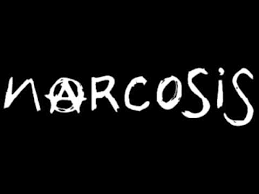narcosis
英 [nɑ:ˈkəʊsɪs]
美 [nɑrˈkoʊsɪs]
- n. 麻醉;昏迷状态

记忆方法
记忆“narcosis”的方法是将它分解为两部分:“narc”和“osis”。联想“narc”为“narcotics”(麻醉剂)的简写,而“osis”是医学中用于表示某种状态的词缀,如“hypertension”中的“-tion”。所以,将“麻醉剂”的状态(narcosis)结合起来,想象一下麻醉剂产生的无感觉或昏迷状态,从而记住“narcosis”是麻醉或昏迷状态的意思。
以上内容由AI生成, 仅供参考和借鉴
中文词源
narcosis 麻醉
来自希腊语narke,麻木,失去知觉,-osis,生病状态。引申词义麻醉。
英语词源
- narcosis (n.)
- 1690s, "state of unconsciousness caused by a narcotic," Modern Latin, from Greek narkosis, from narkoun "to benumb" (see narcotic (n.)).
权威例句
- 1. Method: use the narcosis to cure pelvic hematocele syndromes 54 cases.
- 方法: 对54例盆腔淤血综合征的患者采用麻醉的方法治疗.
- 2. Deep - sea divers can suffer nitrogen narcosis from breathing air under high pressure.
- 深海潜水者会因在高压下呼吸而出现氮麻醉.
- 3. Conclusion: It is better effect to pelvic hematocele syndromes treated by narcosis.
- 结论: 麻醉治疗盆腔淤血综合征效果好.
- 4. Care must be taken not to confuse narcosis with death.
- 操作一定要注意不要将麻醉昏迷与死亡混淆.
- 5. Nitrogen narcosis ( or nitrogen euphoria or raptures of the deep ): Effects of Breathing nitrogen under increased pressure.
- 氮麻醉 ( 亦称氮欣快或深水销魂 ): 在压力增高的条件下吸入氮气所产生的生理效应.